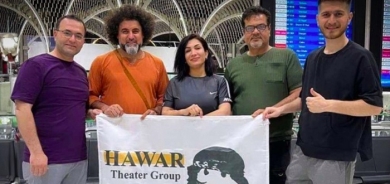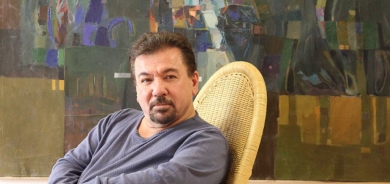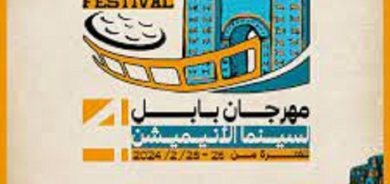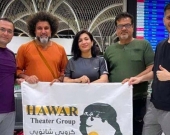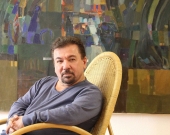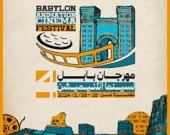Harmony: Music returns to Rojava after devastating ISIS conflict

Mustafa and his brother Ahmed were born blind. Unable to attend school or play in the streets of their native Kobane, making music together at home became a soul nurturing outlet in the darkness.
But in 2014, when Islamic State (ISIS) militants seized the city in the Kurdish-majority region of northern Syria — known as Rojava — the brothers were forced to leave their instruments behind.
Returning in the summer of 2015 after the city’s liberation, they were devastated to find the jihadists had destroyed their instruments, including Mustafa’s prized violin.
“I left my instruments here. I left my violin, the guitar, my lute. I also left my tambur. There was no way to take them with me,” Mustafa says in a touching new film, “Harmony”, created by Pablo Tosco and Migue Roth for Rudaw.
“When I returned, Daesh (ISIS) had destroyed all my instruments … Without music, everything is more painful.”
“Music is a nutrient for my soul.”
The strict Islamic doctrines of ISIS forbade music and other art forms. Music schools and institutes across the region were smashed under ISIS dictat.
Gani Mirzo, a Syrian Kurd and lute player who lives in Spain, was appalled by the trampling of the region’s culture, which had deprived local musicians of instruments and opportunities to learn.
Working alongside Musicians Without Borders, Mirzo launched a project to deliver secondhand instruments to Rojava to replace those smashed by the jihadists.
“Culture is going through a critical moment. Many artists sought refuge in camps such as Domiz and others in Iraqi Kurdistan, Turkey and Europe. And this is how Rojava ran out of artists. The situation became a tragedy,” Mirzo says.
Gathered over a period of six months from civic centres, conservatoires, and musical institutes across the Basque Country, the instruments were shipped to the Kurdistan Region of Iraq and trucked over the border into Rojava.
Many of them were donated to a musical institute in Qamaishlo set up by an Armenian Christian violinist, Haroud K MadarJ-Ian, who was forced to flee his home in Raqqa when ISIS attacked.
Haroud was 18 when the jihadists seized the city, which became the de facto capital of the group’s so-called caliphate.
“They came to my house and forced my family to leave,” says Haroud. “Everything stopped. But despite that, I did not abandon music.”
His institute, located in an Armenian district of Qamishli (Qamishlo), teaches students of music from all backgrounds, including Kurds, Assyrians, Armenians, Arabs, Christians, and Muslims. It is this triumph of diversity which gives the school its name — Harmony.
“We are a mixture. We make music free of religions, ethnic groups and any other concept,” Haroud says.
Among the instruments delivered to the region was a one-hundred-year-old French violin, donated by Basque folk musician Fran Lasuen.
Lasuen was moved by the story of the blind violinist without a violin, and chose to part with the vintage instrument.
“In this last trip of my friend Gani Mirzo, he told me an exciting story about two brothers, both of them blind from birth who are musicians, and one of them, a violinist, but without a violin,” Lasuen says.
“It makes me happy it has a destiny,” Lasuen says, cradling the instrument before its long journey to Kobane.
Mirzo personally delivered the violin to Mustafa’s home.
In one of the film’s closing scenes, Mustafa gently opens the case and brushes the violin strings with his fingertips. The sound is rich, resonating powerfully in the family’s courtyard in the ruined city.
Reconstruction will take time. But Mirzo is optimistic the region’s music culture can be salvaged from the ruins.
“When among the ruins you listen to their melodies and their lyrics, their poetry is above the roar of war,” he says. “They make the noise stop with music.”
Rudaw




